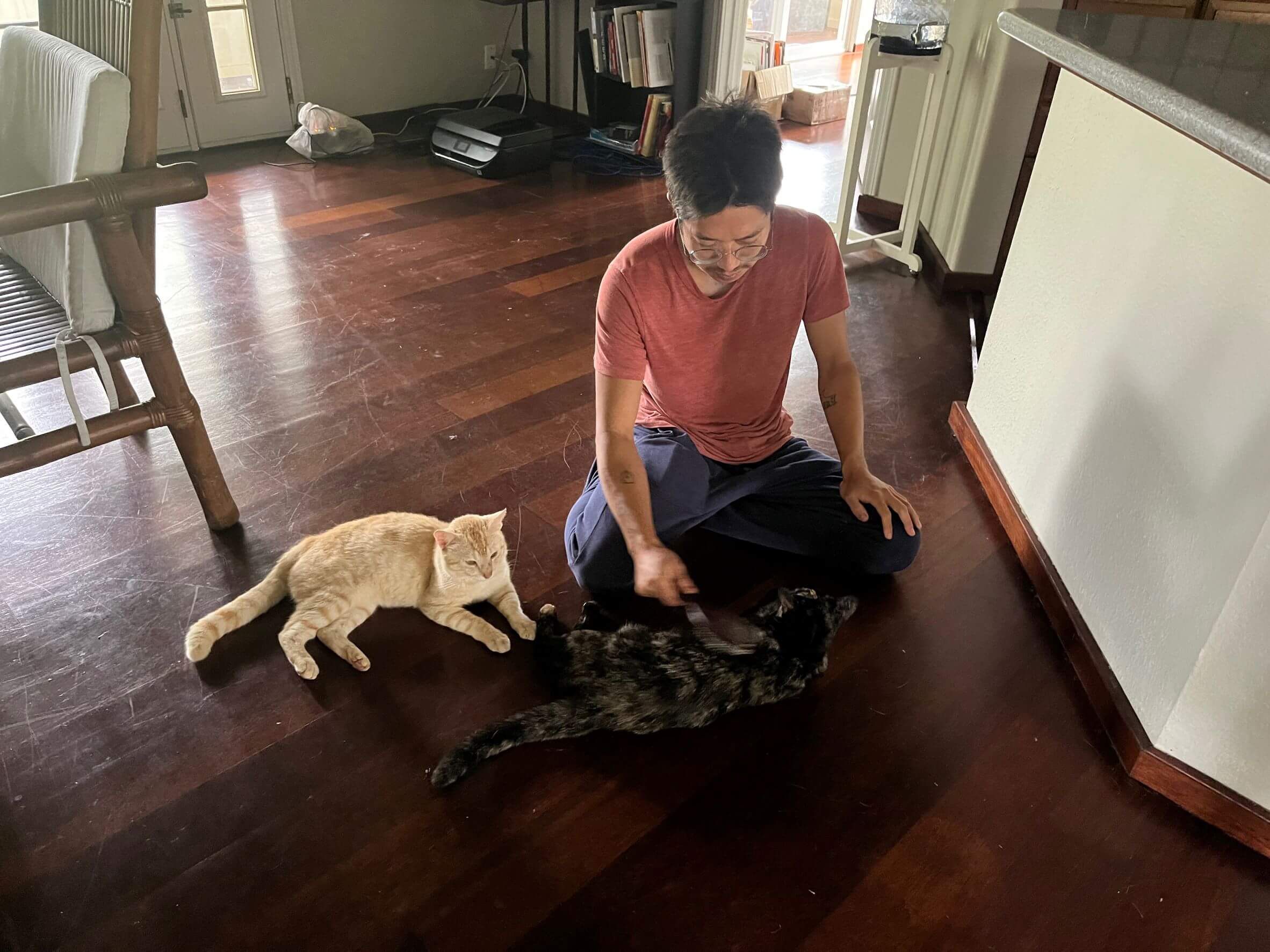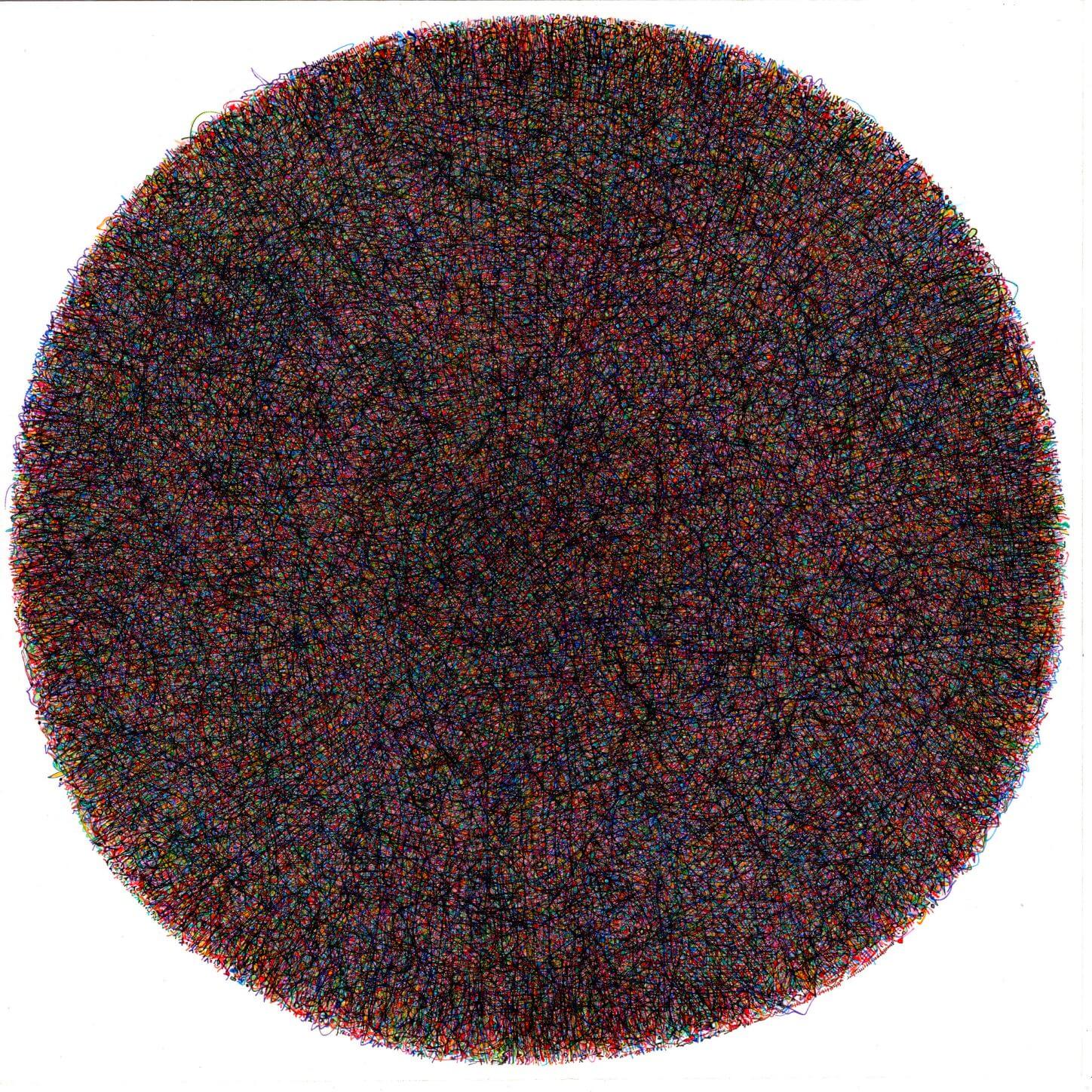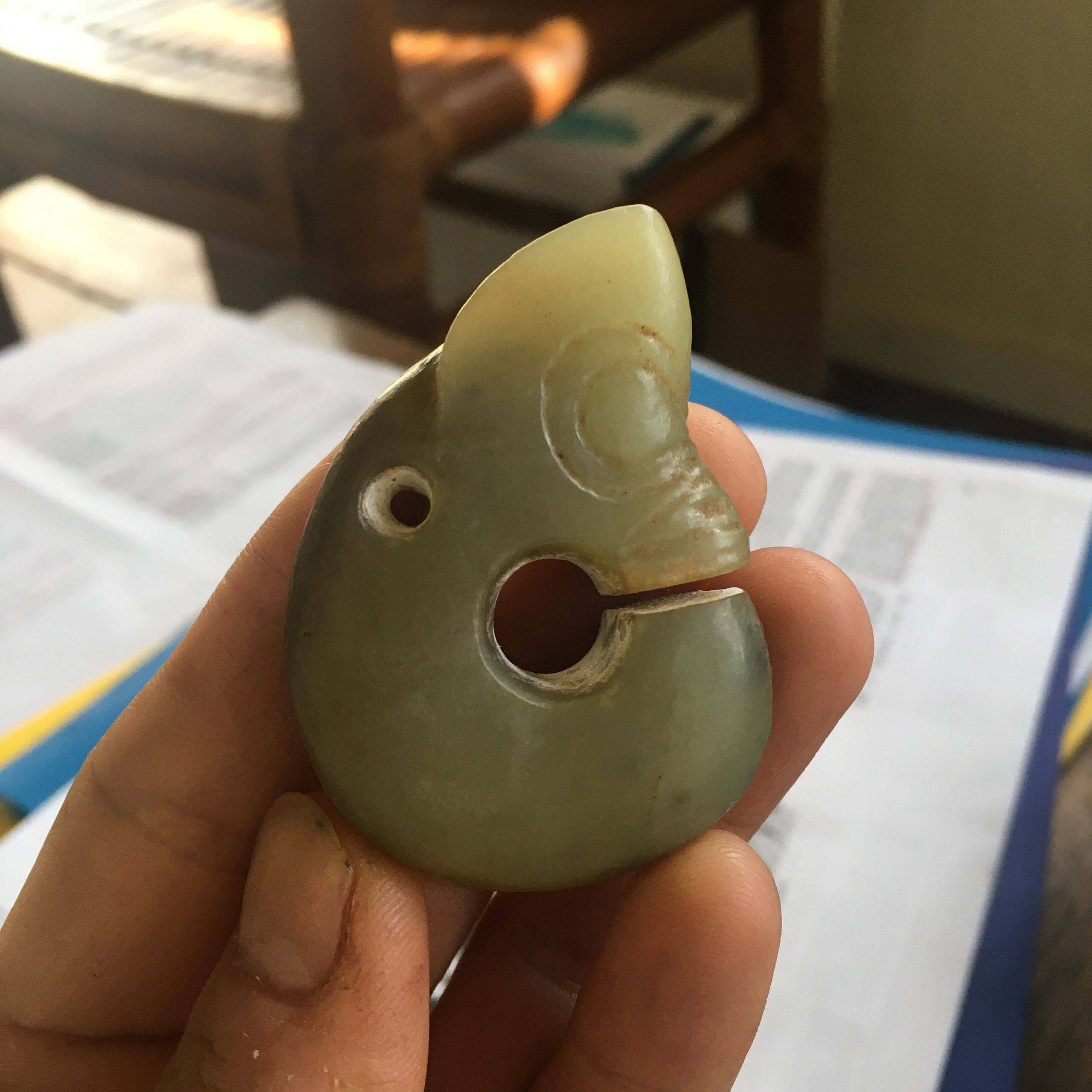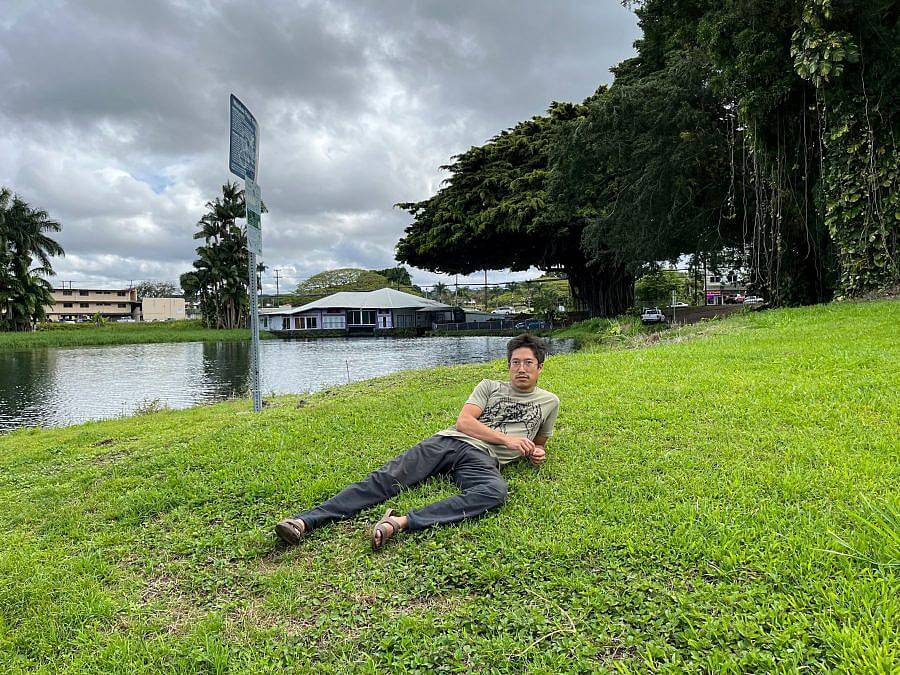Tell us a bit about yourself and what you do.
I’m a writer and an artist. I began by writing poetry and stories, then novels. I’ve begun shifting since 2018 to nonfiction. I’m currently most interested in natural health and self-healing. My books before 2014 were bleak and pessimistic, while my books since then have been uplifting and positive. I’ve gotten very interested in independent research since 2014, and have read 697 books since then.
-

Tao Lin in his Hawaii Home
Can you talk a bit about your recent essay, “The Story of Autism: How We Got Here, How We Heal” and how you began conducting research on Autism?
I started researching autism in around 2015 for my novel Leave Society (2021). I wrote about autism a bit in that. In June of this year, Noah Kumin, editor of Mars Review of Books, emailed me asking if I’d write about autism for his magazine. I was reluctant at first, saying my views on autism were controversial, and contradicted the dominant view on autism. He encouraged me, and over four months I wrote the essay.
Your recent novel “Leave Society” has been praised very highly; how do you feel about the response to the book given that it’s so referential to your own lived experiences?
It’s been praised highly by some, while others have reviewed it skeptically and snarkily. I feel good that it reached many people, and that many people found inspiration from the ideas in it, and that I got to spread the ideas in it—ideas from Riane Eisler on partnership societies, from Eric Lerner on the Big Bang being wrong, from Stephanie Seneff on health, from Katie Singer on the harms of electromagnetic radiation.
-

Cover of ‘Leave Society’
What have you been listening to recently?
Nocturnes and impromptus by Chopin. The slow movements of Mozart’s piano sonatas, and his violin and piano sonatas.
What are some things you wish you would have worked on or done differently as a younger writer?
I think Eeeee Eee Eeee (2007), my first novel, could have had more paragraph breaks.
Could you talk about your mandala drawings and how those are made?
They’re drawn on 8″ by 8″ watercolor paper. I use colored pens and colored pencils. I draw in silence (sometimes), while listening to music (sometimes), and while listening to podcasts (most of the time). Recently I’ve been enjoying these podcasts while drawing: Joe Rogan, Red Scare, Contain, Paul Saladino’s Fundamental Health.
-

Star Mandala
What have you planted in your garden recently?
In the past few months, I’ve planted many plants around a playground I made for my three cats—three papaya trees, some catnip, a guava tree, a fig tree, etc.
-

Tao Lin’s Home Garden
When did you become interested in health and how did you adopt your current diet and sensibility towards food?
My interest in health started in late high school and in college, when I learned I had some control over my health—through diet, exercise, etc. My diet has evolved continually since then—I was vegetarian, then vegan, then raw vegan, then paleo, and now have been trying eating only meat and fruit.
What do you collect?
Last year, I started collecting art by the Hongshan culture, a Goddess-worshipping culture that existed from around 6,700 to 4,900 years ago to Northern China. I’ve been getting them cheap off eBay—around $20 per piece. According to David C. Anderson, author of Hongshan Jade Treasures (2012), graverobbers got most of the pieces, and now sell them on eBay. The pieces on eBay are viewed as fake by museums and most archaeologists—which is why they’re so cheap—but Anderson’s research shows they are real. “Real” pieces have sold for more than a million dollars. Pictured is a pig-dragon.

Do you feel that you have a persona to uphold?
No. I did at some point, maybe up to 2013, but since then I’ve stressed change, and stressed the importance of learning how I’ve been wrong, and learning from that prior wrongness, and changing. So now maybe I do feel that I want to uphold my promotion of change, but it doesn’t feel like a persona, more like a mindset.
Interview Conducted by Sam Dybeck and Milo Christie
